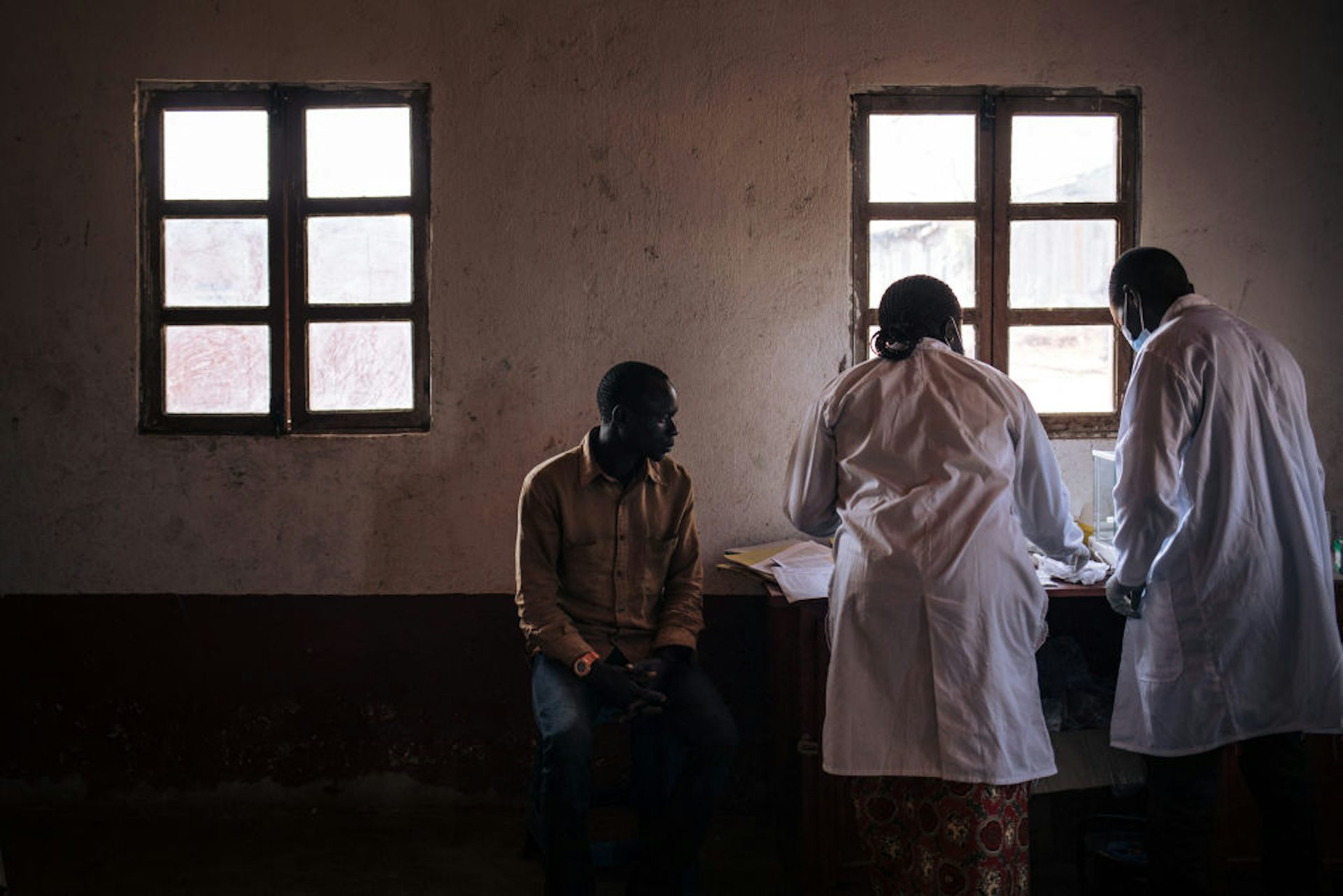How can job loss be bad for health, and recession be good for it?
The negative effects of job loss have been well-documented and fairly well-understood. But why would studies also suggest that health improves during a recession? The reasons may surprise you.

There’s no better time than Labor Day to think about the critical role that work – both our own jobs and the labor of others – plays in all of our lives. But this role is surprisingly complex: While job loss and unemployment can cause individuals’ own health to suffer, studies have shown that mortality rates go down during a recession.
Understanding this seeming contradiction forces us to think not only about how our own employment affects health, but also about how the labor and working conditions of others can affect us all.
My own research in economics with co-author Jessamyn Schaller shows that in the immediate aftermath of job loss, workers report worse mental and physical health. Those with preexisting chronic conditions, who may be relatively heavy users of health care services prior to job loss, become less likely to visit the doctor or obtain prescription drugs. But there’s more to the story than this.
Laid-off workers much more likely to die early
The link between work and health can be dramatic. Economists Daniel Sullivan and Til von Wachter have shown that U.S. workers who lose jobs in mass layoffs have death rates in the years just after the layoff that are 50 percent higher than similar workers who did not lose jobs.
The same study showed that, even 20 years later, these displaced workers had elevated death rates. While the mechanisms at work here are not fully understood, reductions in income, income uncertainty and the associated stress are thought to drive these negative health effects.

Both of these studies address the possibility that workers who are already in poor health may be more likely to suffer job loss. If this is the case, poor health could lead to unemployment rather than the reverse. Our work on shorter-term health effects looked only at outcomes that could be measured both before and after job loss to be sure that the health effects appeared only after the job loss.
Research using mass layoffs also guards against reverse causality, the idea that poor health leads to unemployment rather than the reverse. They do this by focusing on major mass layoff events where unhealthy individual workers are unlikely to have been chosen for layoffs. Further, Sullivan and von Wachter showed that firms with a greater ability to select particular workers for layoff did not seem to lay off less healthy employees.
An unexpected twist
The more surprising part of the relationship between health and unemployment flips the initial pattern of job loss leading to poor health on its head.
A series of studies, many by economist Christopher Ruhm, shows compelling and surprising evidence that “recessions are good for your health.” More specifically, they show that mortality is lower when unemployment is relatively high. While this link may have weakened somewhat in the past decade, it is robust across a number of studies including data from the 1970s through the early 2000s.
How can, or could, this finding coexist with what we know about the harm of individual job loss?
A key point is that, even in the worst years of a recession, most workers remain employed and so are not subject to the negative effects of individual job loss. Which begs a question: What factors could explain the beneficial health effects of a recession?
Possible explanations
We’ve long known that when there is less economic activity (as in a recession) there are fewer cars and commercial vehicles on the road, and so fewer traffic deaths. Motor vehicle accidents, however, are too small a fraction of all deaths to fully explain the pattern of increased mortality during recessions.
Research has also suggested that individuals may engage in more positive health behaviors, including getting more exercise and seeing the doctor more often, when hours of work decline.
Many of us work less during bad economic times because of reduced hours, fewer work assignments or less overtime. Working a bit less would certainly benefit some, but that does not change the fact that having no access to paid work is also quite stressful.
Finally, pollution may decline during times of reduced productive activity like recessions, and less pollution could mean in fewer respiratory-related health problems and deaths.
One limitation of these explanations for the surprising connection between recessions and mortality is that none can adequately explain mortality patterns among the elderly. Because most deaths, of course, occur among the elderly, we need an explanation that applies to older individuals, who account for most of the aggregate mortality rates.
A subtle difference, an important finding
That brings us to a final explanation, one that forces us to think more squarely about the role that others’ work opportunities and choices may have on our own quality of life.
My colleagues and I showed that during times of low unemployment, employment of direct-care health workers, such as nursing aides and other health aides, declines. These are often physically and emotionally demanding, low-paid, high-turnover jobs.
When these workers have other options, in good economic times, they take them.

As a result, in times of low unemployment, nursing homes are far less likely to be fully staffed with front-line patient care workers. In a weak economy, staff may be better trained, and there may be less frequent turnover. Our work connects this to mortality by showing that most of the responsiveness of death rates to unemployment rates occurs among the elderly living in nursing homes. This is precisely where staff vacancies can be acute during good economic times. Hard times may improve the quality of health care and reduce mortality by making it easier to recruit and retain health care workers.
This is a powerful illustration that not only is our own work critical to our well-being, but the work and working conditions of others affect us as well, sometimes in surprising ways.
Labor Day celebrates the contributions of American workers and should remind us that disruptions in the labor market can have powerful effects on individuals’ lives and health. During good times, vacancies in critical occupations, even when driven by better options elsewhere, may be bad news for some.
Ann Huff Stevens has received past research funding from the National Science Foundation and the U.S. Department of Health and Human Services.
Read These Next
Billions of dollars, decades of progress spent eliminating devastating diseases may be lost with und
Public health campaigns had made significant strides toward eradicating diseases like elephantitis and…
Operational secrecy kept the US from making evacuation plans – and that means Americans in the Midea
A longtime diplomat explains how the State Department normally encourages and helps Americans to leave…
How Denver’s Northeast Park Hill community reduced youth violence by 75%
A neighborhood coalition identified risk factors for youth violence and prevention strategies.





